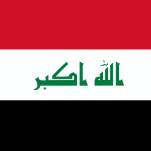EAME’s Managing Director, Steve Rowan, was recently invited, by the Guyana Hemp Association, to participate in a round table discussion concerning the emerging hemp industry in Guyana, it’s impact on youth employment, the Green agenda and Guyana’s long-term development in a changing global economic environment.
EAME is currently working with a local agricultural company, international hemp organisation and the Guyana Hemp Association to bring full scale hemp farming to Guyana, with a view to the country becoming a major manufacturer of hemp based industrial products. Hemp can be 100% utilised to produce a vast range of industrial products used in automotive, construction, home-ware, textile, tech and pharmaceutical sectors. Its growth and usage is a major contributor to sustainable development objectives.
EAME has been involved with various infrastructure developments in Guyana since 2016 after it was identified as an emerging market with whom EAME could develop long-standing relationships and alliances.
Steven Rowan (EAME MD) is the main speaker at the ‘Developing Guyana – A round table discussion’ to be held in London on 28/01/18.



